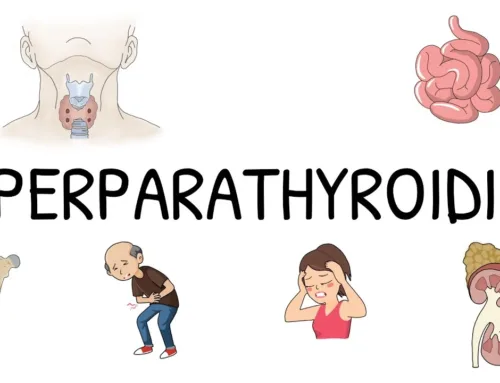Addison’s disease is a rare condition that occurs when your body doesn’t produce enough of the hormone cortisol. Cortisol is essential for regulating blood pressure, maintaining bone health, and promoting healthy sleep patterns. In Addison’s disease, cortisol does not produce by the adrenal gland to meet these needs—leaving you at risk for serious complications if left untreated. This article will explain what causes Addison’s disease and how it’s diagnosed and treated.

Addison’s disease is an autoimmune disorder.
Addison’s disease is an autoimmune disorder in which the body produces insufficient amounts of the hormone cortisol. Cortisol is a hormone that helps your body deal with stress and maintain normal blood pressure, among other things.
The adrenal glands are two small organs on top of each kidney that produce several hormones, including insulin, estrogen, and testosterone (in men), corticotropin-releasing factor (CRF), mineralocorticoids such as aldosterone, and sex hormones like progesterone or estradiol (in women).
When these glands do not produce enough cortisol due to damage from infection or injury, they can lead to serious health issues like fatigue; muscle weakness; weight loss despite increased appetite; low blood pressure upon standing up quickly; reduced immunity leading to frequent infections such as colds or flu that last longer than usual before clearing up completely without treatment because there are no medications available yet since most doctors don’t know about this condition yet so there isn’t much research being done into how best treat it effectively without causing any side effects either which makes it hard for patients suffering from these symptoms who haven’t been diagnosed yet because they’ve never heard anything about this condition before like me until recently when I started researching ways in which people could help themselves get better faster without needing anyone else.
Classic symptoms of Addison’s disease
The classic symptoms of Addison’s disease include weight loss, weakness, and fatigue. Other signs include nausea or vomiting; low blood pressure upon standing (orthostatic hypotension); high blood sugar; depression; insomnia; muscle aches; anemia (low red blood cell count); abdominal pain; confusion.
Addison’s disease is a life-threatening condition that can be treated with medication if diagnosed early enough in its course.
Tests to diagnose Addison’s disease

Addison’s disease is a condition that affects the adrenal glands and can lead to low levels of cortisol and other hormones. A doctor will take your history, perform a physical exam and order blood tests to diagnose Addison’s disease.
A complete medical history is essential for determining if you have Addison’s disease. You may be asked about the following:
- Your symptoms (including whether or not they come and go)
- Medical conditions or previous surgeries that may have caused damage to your adrenal glands (such as an appendectomy)
- Any infections or illnesses that you’ve had recently
- Birth control use
The doctor will also perform an examination looking for signs of Addison’s disease, such as:
Medications and steroid replacement therapy for the treatment
Treatment for Addison’s disease may include medications and steroid replacement therapy.
Addison’s disease is a serious condition that can be life-threatening if left untreated, so it’s important to get proper treatment as soon as possible. Medications from your doctor can help you manage your symptoms and keep them under control until you’re ready for more permanent solutions like surgery or transplantation.
Addison’s disease is a serious condition but can be treated with proper diagnosis and care
Addison’s disease is a serious condition but can be treated with proper diagnosis and care. Addison’s is an autoimmune disorder that affects the adrenal glands, which produce hormones that help regulate your body’s response to stressors such as illness or injury.
When you have Addison’s disease, your immune system attacks the adrenal gland (adrenal cortex) cells that make cortisol and other important hormones. This causes those glands to stop working properly, resulting in low levels of these critical hormones:
- Cortisol
a steroid hormone released by the body in response to stressors like infections or injuries; helps regulate blood pressure and fluid balance; necessary for survival; regulates metabolism and body temperature; helps maintain blood sugar levels during fasting periods
- Aldosterone
a mineralocorticoid hormone released by the kidneys when sodium levels fall too low; helps regulate blood pressure by controlling water retention
Conclusion
If you think you may have Addison’s disease, getting diagnosed and treated is important. The earlier the diagnosis, the better chance there is for recovery. This condition can lead to serious complications, including death, if left untreated.
To get a knowledge about Acromegaly you should visit Acromegaly: What It Is Causes Symptoms & Treatment.




Leave A Comment